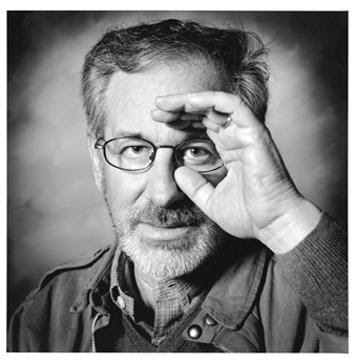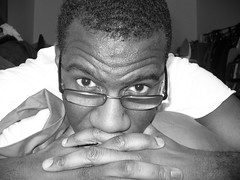
I was recently reading about Mia Farrow’s campaign to get Steven Spielberg to use his considerable influence to put a bug in China’s ear regarding Darfur.
China chose Spielberg to be the artistic director for the 2008 games in Beijing. Her much publicized open letter appeal seems to have gotten the waters churning as Spielberg has been seemingly stirred to action (see King James, it’s not that hard now is it?).
If Mr. Spielberg does decide to decline the position should China continue its financial support of the current genocidal regime in the Sudan, then I heartily applaud him. I’ve always respected the man as an artist and it’s nice when you can also respect somebody just as a human being.
This incident also got me to thinking about how little respect Spielberg gets as a director. Sure, critics tend to review his films pretty well, but his name rarely seems to come up when the conversation about greatest directors is brought up. Scorsese, the Coen brothers, Woody Allen, Soderbergh, Terrence Malick —I’d wager most critics would bring these names up before Spielberg’s.
I would argue that Steven Spielberg might be America’s greatest living director. The only person I’d have a difficult time ranking him above is Martin Scorsese, but these two are really like McCartney and Lennon—both geniuses in their own right whose works appeal to different audiences.
In my estimation, Steven Spielberg has crafted these bona fide masterpieces: Jaws, E.T., Raiders of the Lost Ark, Schindler’s List and Saving Private Ryan. Does it matter that the first three are among the highest grossing films of all time? If something is that popular, it can’t be very good right? That’s a load. The subject matter of those first three films isn’t exactly challenging, but the craft that went into making them is unassailable. I can watch any of those first three films today and marvel at how well they hold up. A great movie is almost like a monument—its aesthetics may anchor it to a specific moment in time, but the craftsmanship behind it never fails to awe you. Hitchcock is often cited as the best director of American films ever, but his movies didn’t tackle weighty subjects either. His films were just really frakking good.
Yet even if we accept that the first blockbuster, a beloved children’s film and an homage to serial matinee movies can be great films in their own right, we run into the problem of the critical reaction to Spielberg’s “heavy” films. I readily admit that Amistad falters under the weight of its subject matter, but I also think it’s an interesting failure. And besides how many directors with Spielberg’s level of commercial success would ever decide to make a movie about slavery? Could you imagine George Lucas making a movie about Japanese internment during WWII?
Spielberg at the height of his commercial powers (he’d just released Jurassic Park) releases the best film of his career and it’s about the Holocaust. When I say the critical reaction was problematic, I don’t mean the movie wasn’t well received. It got fairly high marks. Yet, critics couldn’t help but take a dig at the S Double. Their point of contention? The penultimate scene in the movie where Liam Neeson’s Schindler is overwhelmed with emotion:
Oskar Schindler: I could have got more out. I could have got more. I don't know. If I'd just... I could have got more.
Itzhak Stern: Oskar, there are eleven hundred people who are alive because of you. Look at them.
Oskar Schindler: If I'd made more money... I threw away so much money. You have no idea. If I'd just...
Itzhak Stern: There will be generations because of what you did.
Oskar Schindler: I didn't do enough!
Itzhak Stern: You did so much.
[Schindler looks at his car]
Oskar Schindler: This car. Goeth would have bought this car. Why did I keep the car? Ten people right there. Ten people. Ten more people.
[removing Nazi pin from lapel]
Oskar Schindler: This pin. Two people. This is gold. Two more people. He would have given me two for it, at least one. One more person. A person, Stern. For this.
[sobbing]
Oskar Schindler: I could have gotten one more person... and I didn't! And I... I didn't!
I’ve heard critics deride this scene as too saccharine, a Spielberg weakness to rely on sentimentality. What?! So, a man just witnesses the destruction of an unfathomable amount of human life and we knock Spielberg for showing how this affects him? Did this scene happen in real life? Well, probably not obviously, but I do believe that the real Oskar Schindler and in fact those who were active participants in that brutal episode in history have asked themselves a similar question: “did I do enough?” That scene is precisely why I love Spielberg. His characters speak to the humanity we each hope to find in ourselves. That is Spielberg’s voice. That’s what makes him such a great director.
Although Saving Private Ryan was also lauded critically upon it’s release, you will find many critics today who would say the movie is a bundle of clichés book-ended by two phenomenal battle sequences. Bollocks! SPR is just as emotionally complex and engaging as Schindler’s List. Recall the film starts with a sun-drenched almost transparent American flag. That alone signals that the movie isn’t some blindly patriotic love letter to America. The film is subtly anti-war. (Think of the tragic arc of Jeremy Davies’ Upham and how ultimately the war dehumanizes him.) I always tell people to think about what Matt Damon’s character represents. He’s not just some grunt who the military feels sorry for because his brother’s died (spoiler, oops!). He represents the country asking itself, “why are we over here?” The average American probably understood Pearl Harbor on some level and knew we had to do something. Still, WWII cost a lot of lives and people still needed a strong reason to sacrifice their children for the lives of foreigners they would never meet. The movie’s characters were also not just stock war characters. Tom Hank’s Captain Miller gave great insight into how we define our leaders and what we expect from them. Yes, the battles are spectacular in the movie, but there is a great deal of substance in between.
The other knock against Spielberg is that he is essentially a "pop" director. He works in the mainstream. To critics, this is a crime. I admit I'm not too fond of most popular or commercial art either, but I give props when they are due. Also, Spielberg stretches himself and has done so throughout his career. A.I., 1941, Empire of the Sun, The Color Purple, the aforementioned Amistad--these are all outside of his comfort zone.
I hope one day that Spielberg gets the respect he deserves. He should at least be included in the debate when the topic of "greatest living directors" is discussed. He’s still making good films. (Munich may be a masterpiece too, but I need more time away from it to be sure.) He’s currently working on Indy IV and then a film about Lincoln. I’ll be looking forward to both equally.






